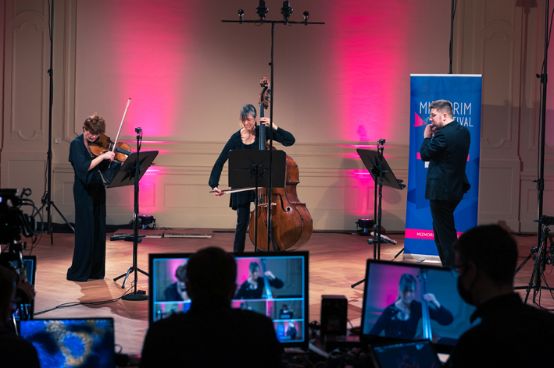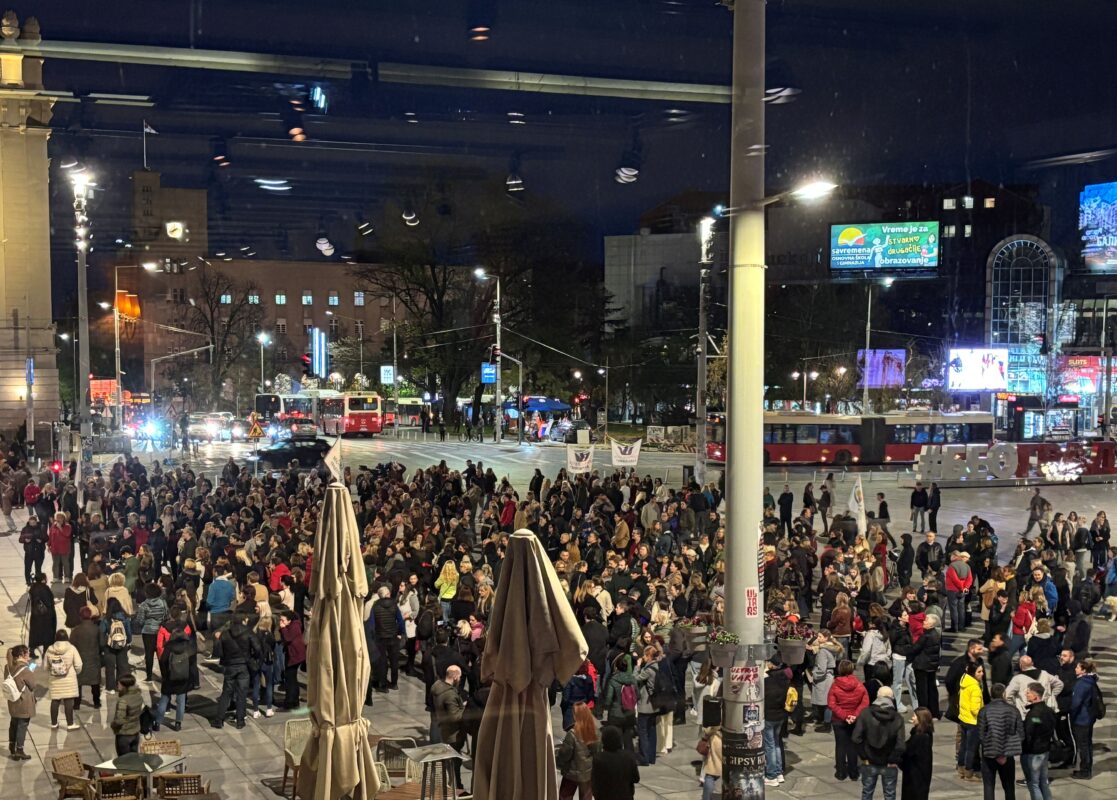Music must take place
The 7th Mizmorim Festival was dedicated to Czech music under the title "Bohemian Rhapsody". The event was streamed on a greatly reduced scale.

When it became clear at the beginning of December that concerts with an audience would not be allowed to take place until further notice, the organizers quickly decided on a livestream. Postponing was not an option. Nobody wanted to know about canceling either, because that would have meant months of intensive preparation work would have been in vain. "Music has to happen," emphasized artistic director Michal Lewkowicz, demanding a great deal of flexibility from the organization team and the performers at short notice. Of course, the planned program could not be carried out one-to-one. Many musicians were unable to travel due to quarantine regulations or illness. Out of seven concerts and two family performances, four concerts remained, all of which took place on January 24, and the audience discussion was postponed. The programs had to be rearranged and several works by Dvořák, Janáček, Martinů, Ullmann, Pavel Haas, Gideon Klein, Marcelo Nisinman and Krištof Mařatka had to be cancelled altogether. Osvaldo Golijov's new additions to the program are Lullaby & Doina for flute, clarinet, violin, viola, violoncello and double bass - a rewarding re-listening to this original composer, whose The Dreams and Prayers of Isaac the Blindfor clarinet and string quartet (Festival 2015) and song cycle Ayre(CH premiere, 2018 festival) are still vividly remembered. There was also Janáček's Sonata for Violin and Piano, which was one of the highlights of the festival in the interpretation by Ilya Gringolts and Benedek Horváth.
Stream with stuttering
The picture direction was one of the plus points of the broadcast. The sound quality was also flawless, but there was a strange feeling of sterility and artificiality, probably due to the lack of ambient noise. It would have been nice to do without the forced bows at the end of the performances. The writer was annoyed by the frequent "loading jams" caused by an overloaded Internet, which significantly reduced the listening pleasure (it is advisable to listen to the concerts later, which usually alleviates the problem).
Despite everything, the festival lived up to its principle of providing a diverse program accessible to all, even under these difficult conditions. Or as Michal Lewkowicz puts it: "There are people who come to the concert because they like to hear great music; others because they like to hear great artists. Then there are people who are really interested in these key topics. I want to offer all of that." The festival is not limited to Jewish works. The current program naturally includes the Czech composers Janáček and Dvořák. There are also no stylistic or chronological blinkers. What is played is what belongs to the theme and meets high quality standards.
Continuity and quality
Presenter Moritz Weber was able to announce some new artists and many familiar ones from previous festivals and present lots of informative bonus material.
Menachem Wiesenberg suggests in his Klezmer Suite a bridge between folk klezmer and classical music. The world premiere of the new version for clarinet, viola, double bass and piano was performed under the direction of the stupendous clarinettist Chen Halevi. In the three Yiddish songs by Viktor Ullmann, composed in 1944 in the Theresienstadt concentration camp, soprano Aurea Marston impressively succeeded in placing her voluminous voice at the service of the folk songs and at the same time combining them with emotional depth. Cornelia Lenzin lent her accompaniment a sensitive profile. The two musicians also left a lasting impression in the two complex songs by the writer and musician Max Brod, Death and paradise based on texts by his friend Franz Kafka, made a strong impression. The winner of the second composition competition, Eleni Ralli, outlines in her 5 Mysterious Scenes for solo violin Character types in the field of tension between stability and instability. Ilya Gringolts unfolded a highly differentiated sound spectrum. The Concertino for flute (Matvey Demin), viola (Silvia Simionescu) and double bass (Ute Grewel) by Erwin Schulhoff turned into a virtuoso and lively firework display. For the performance of Antonín Dvořák's Nocturne B major op. 40 for string orchestra, Ilya Gringolts brought some of his students on stage - the promotion of young talent is also part of the festival concept.
Last but not least, an exquisite jazz concert was on the program. The Basel-based Vein Trio combined Bohemian sounds with their personal musical language. Themes, for example from Dvořák's 9th Symphony and Smetana's piano piece Pensée fugitive as well as, appropriately, from the Bohemian Rhapsody by the rock group Queen, were quoted, transferred into jazz harmonies and varied in skillful improvisations.
Mizmorim has defied Corona in 2021 and will hopefully be back in analog form in a year's time. The concerts are available until January 27 on www.mizmorimfestival.com to listen to.








